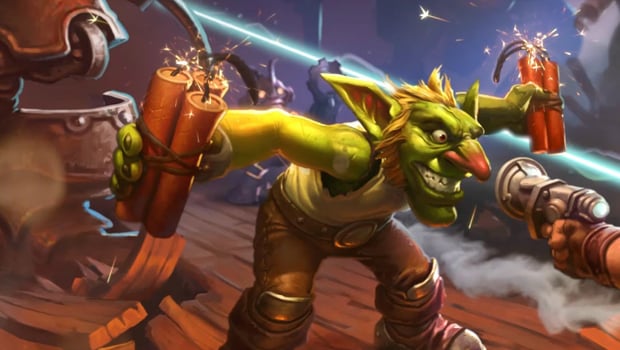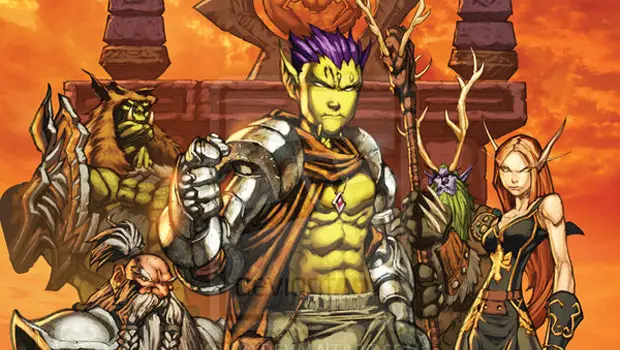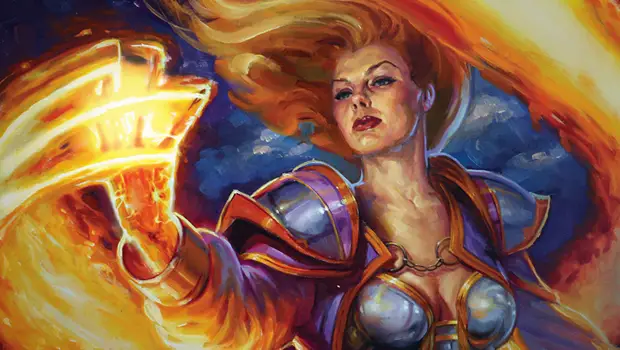Role Play: Character tropes to avoid

When I said, back in the inaugural column, that you could roleplay absolutely anything you want, I meant it. If you want to roleplay a fairy-dragon-vampire, go right ahead. But there’s a caveat with creating a character like that, and it’s the fact that roleplaying isn’t really a solo activity — if you want to really get into roleplay, you do that by interacting with other people. Sometimes other people are okay with crazy concepts, sometimes they aren’t. And while you might think your blood-loving dragon is a really cool concept, you might not necessarily find a lot of people that agree with you.
I’m not saying that you need to create a bland character that fits within the confines of your fellow player’s perceptions of what is “right” and what is “wrong,” of course. But the more you adhere to certain types of characters, and avoid others, the more roleplay you’re likely to find out there in the wild. So when you’re putting together your character concept, one of the things you want to think about is just how many people you’d like to roleplay with, and if the character you’ve made is the kind of character that will repel more than it will attract interaction. With that in mind, there are a few fairly common character tropes that you might want to avoid when creating a character.
 Super powered
Super powered
Sure, you’d like your character to be the strongest warrior on Azeroth, capable of leaping tall buildings in a single bound, able to cut through a swath of enemy Horde like they’re nothing more than melted butter. But where does that ultimately leave you — what kind of room does that character have to grow? If they already know everything there is to know in the world, if they can already easily defeat any foe they face, why would they bother going out in the world at all? What would be the point?
Character development and roleplay are both kind of about the same thing — growth. It’s about the conflicts and situations your character comes across, how they handle those conflicts or situations, and how they are resolved. And that cycle repeats itself, endlessly, or as long as you choose to play your character. A character that is super strong, super smart, or capable of handling anything life throws their way with effortless ease is a character that never has to deal with that kind of conflict — which means, ultimately, they’ve got no where to go.
More importantly, while it might be tempting to make a character that can do everything under the sun, it doesn’t give other roleplayers very much to work with in terms of interacting with you. Nobody likes feeling underpowered — that includes both you, and other roleplayers. If those other roleplayers already know your character automatically has the upper hand in any given situation, then they know that their character is consequentially going to come across as underpowered. So why would they bother trying to interact with you in the first place? Roleplay is about give and take — and if all you do is take, it’s going to become increasingly likely that no one is going to be willing to give you anything.
 Major lore characters
Major lore characters
World of Warcraft has a pretty cool cast of major characters in lore — characters that are already fleshed out and defined, and have big roles in whatever expansion we happen to be playing in at the time. Because these characters are so well known and so beloved, it can be tempting to work them into your character’s story, be it as a close friend, a relative, or some other purpose or role. But along those lines, because these characters are so well known and so well defined, we already know most of what there is to know about them already — and if your character isn’t a character that appears in an official lore capacity, you’re going to run into people that will object.
Generally speaking, it’s best to simply skirt around or avoid any references to major lore figures in your character history, unless they’ve got some kind of legitimate reason for knowing that character that reasonably works within the lore. Your worgen might not be close, personal friends with Genn Greymane, for example — but if they were from a noble house in Gilneas, it stands to reason that Greymane might have heard their name before. Your average Stormwind citizen isn’t going to be Jaina Proudmoore’s best friend — but if they studied in Dalaran around the same time, it’s possible they might have shared class notes or something along those lines, once.
If you really feel like you need to root your character in Warcraft‘s lore, there’s always the option of choosing a minor NPC as a friend or relative. Sure, your character might not spend their Sundays with Lor’themar Theron, but it’s not out of the question to say they know the guy at the bank pretty well, or the leatherworking trainer, or the innkeeper at the local tavern. You don’t have to worry about stepping on the toes of lore fanatics, and you have someone your character can reference or even visit if they’d like. After all, if you spend enough time at the bar, the bartender is eventually going to know your name.
 The lone wolf
The lone wolf
Everyone likes to make a loner, every now and again — the dark, brooding character that spends their time thoughtfully contemplating whatever it is brooding characters brood about. They’re surly, temperamental, slow to trust and they don’t like to talk to people. The tall dark and silent type, an assassin that spends more time skulking in the shadows than drinking in a bar, or a maybe a warrior who’s a lone wolf, fighting for whatever he happens to believe in. These gritty characters can be really appealing to play.
The problem with that is that when you’re a loner, someone who doesn’t talk to people, that leaves the onus of interaction on everyone else. Your character isn’t likely to be the sort of person that just walks up to a random stranger and says hello, they are that random stranger. And if they’re too off-putting, if they come across as unfriendly and brusque, it’s not exactly likely that other roleplayers are going to find a reason — or want to find a reason — for that interaction. If a stranger is sitting in a bar and making it a point not to talk to anyone, it’s not exactly the most welcoming atmosphere.
Does this mean you need to play a cheerful bundle of sunshine? Heck no! I played a loner character for years, and had a lot of fun doing so — but it was a challenge to find roleplay, because I had to pick and choose who to approach, and make sure I had a valid reason for my loner to go approach them. This also meant that I never really had a large group of friends to roleplay with, interactions with my character were usually limited to at best a small handful of people. It made it kind of frustrating, at times, but at the same time, this was a corner I’d boxed myself into, and it was up to me to find my way out of it. In the end, the character’s story finally petered out, she retired, and now I have a new character who is still a little shady, but far more willing to chat with the people she comes across.
None of these three tropes are necessarily bad — if that’s what you want to roleplay, feel free to do it. But be aware that when you choose tropes like these, you may be setting yourself up for a far more difficult experience. If you’re a beginning roleplayer, these are subjects you probably want to avoid, just so that you can get into that whole back and forth of interaction and get used to how roleplay works. Make some friends, form some bonds, and then try that crazy character concept you’ve been dying to fiddle around with. Roleplay is, at its core, about the interplay and interaction between characters — so you want to make sure you’re putting your best out there, to get the best experience you can in return.
Please consider supporting our Patreon!
Join the Discussion
Blizzard Watch is a safe space for all readers. By leaving comments on this site you agree to follow our commenting and community guidelines.
 @Shadesogrey
@Shadesogrey



